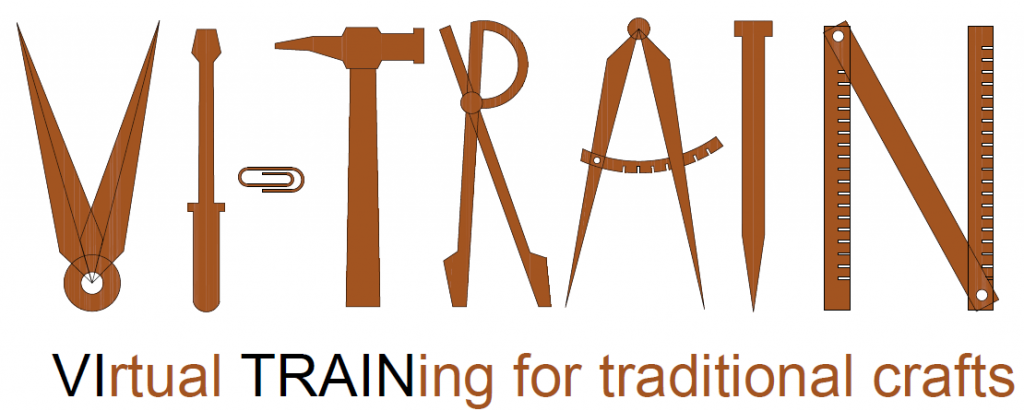What We Aim

Anticipated Objectives

Final Results

Short-term aims

Long-term aims
Anticipated Objectives
- to identify appropriate means of distance learning for the training of craftspeople (manual work)
- to identify appropriate means of online cooperation in training, regarding functionality, GDPR and data security
- to derive success criteria for highly accepted digital solutions
- to develop and test a virtual/3D-crafts training system by using sensors and VR/AR
- to develop and test a virtual/3D-buidling damage identification training system
- to investigate and test options overcoming restrictions, e.g. move sickness
- to develop a train-the-trainer system for application of selected tools in training of traditional crafts
Final Results
- National studies on available virtual education for craftspeople of historic buildings – per partner country
- International research on Best Practice examples of virtual training of hand-on-training of craftspeople, comparing of functionality of relevant online collaboration and eLearning tools, including success criteria (Comparison paper)
- Virtual crafts training curriculum, manual and training material for a selected traditional craft (working procedure like repairing box-type windows)
- Virtual building damage identification training curriculum, manual and training material
- Train-the-Trainer education for instructors of virtual crafts and virtual building damage identification training
- Recommendation paper for overcoming restrictions like move sickness or hesitation of potential users in VR/AR for craftspeople and building damage inspectors
Short-term aims
- Familiarise staff members of historic building management institutions, volunteers, students and supplier staff with digital means and (further) education on this topic relevant for historic buildings/sites
- Offering certified education for staff/suppliers/instructors and knowledge transfer between stakeholders
Long-term aims
- Transfer of identified and tested AR/VR method to other traditional/threatened crafts, other EU countries
- Continued education on digitisation for staff members of historic building management institutions, volunteers, students and staff of historic building and sites, including EHL bearers as well as suppliers
- Open access knowledge databases for historic building experts, their knowledge exchange and enhanced peer group learning, developed in PRO-Heritage
- Permanent knowledge transfer between educational industry, universities and historic building management institutions / enterprises led by practical needs and supplying relevant institutes and students with topics required by stakeholders
- European Competence & Community Centres utilised as resource of VR/AR equipment (rental) and location for tests, courses and co-operation
- Presentation of virtual training aspects (short versions) at trade fairs, job markets and Employment Agency Career Information Centres as teasers for young people, animating them to learn traditional/threatened crafts


